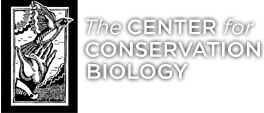Title
The Virginia Avian Heritage Project: A report to summarize the Virginia Avian Heritage Database
Code
CCBTR-12-04
Publication Date
2012
Abstract
Virginia plays a significant role in the life history of many of the bird species in Eastern North America. The diversity of habitats available to birds during the breeding, wintering, and migratory periods combined with its geographic position combine to make it one of the most diverse physiographic regions in North America. Virginia was the site for the first European colonization and since that time has become distinguished as the birthplace of the nation’s ornithological history. Because of this, Virginia is the incomparable benefactor of having documentation on three centuries of avifaunal change. Much of the ornithological information collected during the modern era exists in the form of scientific and popular publications, field diaries of noted ornithologists, museum collections, and unpublished databases. Collectively, these accounts chronicle the recent history of range expansions, population fluctuations, and changes in distribution for a wide range of bird species. Most importantly, this information serves as an invaluable tool for conservation because it provides historical benchmarks to the spatial and temporal patterns of declines for Virginia’s imperiled species. For many species, historical data must be reconstructed to differentiate long-term population declines from short-term fluctuations associated with pulses in colonization. Despite the relative importance of this rich ornithological history, there has never been a comprehensive aggregation of these various archives. The objectives of this project were to begin to assemble the historical and contemporary accounts of Virginia’s avifauna into a geographically referenced database and to develop a method to capture new information on imperiled species as it is produced.
Topic
Abundance/Distribution; Habitat Quality/Use/Movement; Biodiversity/Community Structure; Breeding/Demography/Population Dynamics; Life History/Spp Profile
Species
Shorebirds; Waterfowl; Passerines; Raptors; Nightjars; Seabirds; Marshbirds; Waterbirds; Grassland birds; Forest birds; Colonial Waterbirds
Source
The Center for Conservation Biology Technical Report Series, CCBTR-12-04. College of William and Mary & Virginia Commonwealth University, Williamsburg, VA.
Pages
48
Recommended Citation
Wilson, M. D. and B. D. Watts. 2012. The Virginia Avian Heritage Project: A report to summarize the Virginia Avian Heritage Database. CCBTR-12-04. Center for Conservation Biology Technical Report Series. College of William and Mary and Virginia Commonwealth University, Williamsburg, VA. 48 pp.



